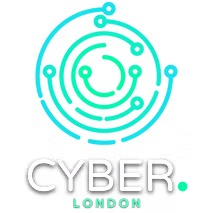On 19th March, 2025, Cyber London hosted an inspiring event at City St George University of London titled “Unlocking Cyber Careers: Skills, Pathways & Opportunities.” Students and professionals alike gathered to gain insights into the growing field of cybersecurity, discover best practices for skill-building, and learn how initiatives like the Cyber Access Network (CAN) are paving the way for aspiring and transitioning professionals.
OPENING REMARKS BY PROFESSOR RAJ RAJARAJAN
Professor Raj Rajarajan, Co-Founder of Cyber London and Professor of Cyber Security at City St. George’s University of London, kicked off the event by accentuating the urgent need for more skilled cybersecurity practitioners in the UK. Drawing from his extensive collaborations with multinational companies and the UK Cyber Security Council, he highlighted the mismatch between employer expectations and the skills of entry-level professionals. Many organizations regularly reach out to him, seeking strong candidates, but he often struggles to recommend students who meet the specific, and sometimes advanced, requirements of the industry.
Professor Raj then referenced the key takeaways from the Cyber Access Network (CAN) initiative—an effort advocated by the UK Cyber Security Council to guide newcomers through the often confusing world of cybersecurity training and opportunities. He emphasized the four major elements shaping the Council’s early careers work:
-
Youth Advisory Panel (YAP) – A group of 16 to 25-year-old students whose feedback informs every decision the Council makes.
-
Certification Mapping – Tools that help individuals plan out their career path by aligning them with the right certifications.
-
Innovative Careers Framework – A structure splitting cybersecurity into 15 distinct specialisms, ranging from penetration testing to risk assessment.
-
Associate Cyber Security Professional (ASAP) – A starting point on the path to becoming a Chartered Cyber Security Professional.
He also highlighted the rationale behind CAN:
-
Cybersecurity is a relatively new field, making it challenging for beginners to differentiate between genuine community-led programs and more commercially driven initiatives.
-
The UK faces a significant skills gap that must be addressed to keep pace with evolving cyber threats.
-
Employers are often unable to find suitably skilled entry-level professionals, indicating a need for more aligned education and training.
Professor Raj encouraged students to see this skills gap as an open invitation to build capabilities that match real-world demands. He stressed that by tapping into CAN’s resources—webinars, online content, and curated guidance—both students and mid-career changers can find clearer pathways into cybersecurity roles.
GUEST SPEAKER 1: ANAS AMER
An entrepreneur, CISO advisor, and Security Operations Leader, Anas Amer shared his personal journey of arriving in the UK, earning a degree in Cyber Security, and founding LeoCybSec, a bespoke cybersecurity consulting and advisory firm serving sectors like Tech, Finance, and Aviation.
Anas emphasized the importance of staying ahead of technology trends, especially cloud-based solutions, and pursuing relevant certifications. He noted that diverse skill sets—from incident response to threat intelligence—enhance a candidate’s attractiveness to potential employers.
One of his most compelling anecdotes involved a young individual who reached out via LinkedIn while working in a restaurant. Initially taken on as an unpaid intern at LeoCybSec, this person’s dedication and willingness to learn led to a full-time position, and eventually, visa sponsorship. Anas used this story to demonstrate the transformative power of perseverance, networking, and continuous learning in cybersecurity.
GUEST SPEAKER 2: SOLMAZ GHAROUN
Solmaz Gharoun, the Outreach Ambassador for Cyber London and an MSc student at City St George University, provided a fresh perspective on internships and industry engagement. Her experiences interning at both LeoCybSec and Atomatik—a no-code workflow solutions company—underscored the value of stepping out of one’s comfort zone and exploring various specialisms within cyber.
Solmaz encouraged participants to actively engage with professionals at events like CAN, underscoring how her collaboration with Professor Raj and her strategic networking efforts have led to multiple ongoing projects with CEOs and entrepreneurs. She highlighted the importance of staying proactive and capitalizing on every chance to connect with mentors, potential employers, and like-minded peers.
SUCCESS STORIES
Alongside these insights, the event featured an inspiring story from Twané Janse van Rensburg, Head of Sales at Zhero. Twané began her career in accounts at an entry-level position but swiftly climbed the ranks to become Sales Manager within three years. She attributed her rapid progression to persistent upskilling—learning beyond her immediate role and volunteering for cross-departmental projects.
Twané stressed that today’s cybersecurity landscape rewards adaptability and tenacity. Whether one is a student or an experienced professional, consistently seeking new knowledge and refining existing abilities sets the stage for career advancement. She encouraged attendees to remain steadfast, even when faced with setbacks, because resilience and willingness to learn can transform a seemingly modest starting point into a leadership role.
Q&A SESSION
During the Q&A portion, participants were keen to explore pathways into cybersecurity and clarify which qualifications, experience, and opportunities would best position them for success. Certifications were a recurring topic, with speakers suggesting a balance of foundational credentials (e.g., CompTIA Security+, Network+) and advanced, role-specific ones (like CISSP or CEH) for those aiming to specialize. The panel also addressed concerns around non-technical backgrounds, affirming that students from fields such as business or electrical engineering can transition into cyber roles, particularly in governance, risk, compliance, and managerial tracks.
Internships emerged as a key stepping stone for newcomers, and the speakers mentioned that Cyber London regularly collaborates with partner companies to offer real-world exposure. The conversation naturally flowed into work permit considerations, highlighting that post-study work visas can be an excellent period for recent graduates to gain entry-level cyber experience and possibly secure longer-term sponsorship. When asked about the best cybersecurity pillar (offensive, defensive, or compliance) to start with, the consensus was that it depends on personal interests and strengths; however, building a broad foundation in security fundamentals is invaluable regardless of the specialization. Finally, the speakers encouraged attendees to network actively and tailor their resumes and LinkedIn profiles to showcase both technical know-how and a genuine passion for cybersecurity, thus improving their chances of landing entry-level roles.
END NOTE
“Unlocking Cyber Careers: Skills, Pathways & Opportunities” proved a valuable forum for students, career changers, and industry professionals alike. With Professor Raj Rajarajan supporting the CAN initiative’s objectives, Anas Amer demonstrating the power of networking and skill diversification, Solmaz Gharoun highlighting the impact of internships and event participation, and Twané Janse van Rensburg illustrating the benefits of persistence and continuous learning, attendees left with renewed clarity and motivation.
As the demand for cybersecurity experts continues to rise, events like these serve as critical platforms for bridging the gap between academia, industry, and aspiring professionals. By tapping into resources like the Youth Advisory Panel, certification mapping, the innovative careers framework, and the Associate Cyber Security Professional track, newcomers can find clearer routes to success. Ultimately, it is a combination of technical expertise, strategic networking, and a relentless drive to learn that will unlock the doors to thriving cyber careers in the UK and beyond.
EVENT CLOSING
The session concluded with a group photo of participants and organizers, capturing the collaborative spirit of the afternoon. Students were encouraged to attend upcoming Cyber London events to further expand their knowledge and connections. A brief networking opportunity followed, allowing attendees to exchange LinkedIn profiles with the guest speakers for potential mentorship, internships, and future collaborations.
GET INVOLVED IN CAN
-
Find out more about CAN here https://bit.ly/can-cl
-
Join CAN here https://bit.ly/canrf-cl

